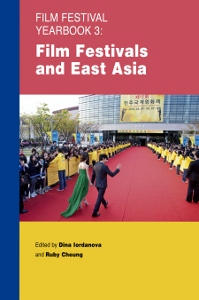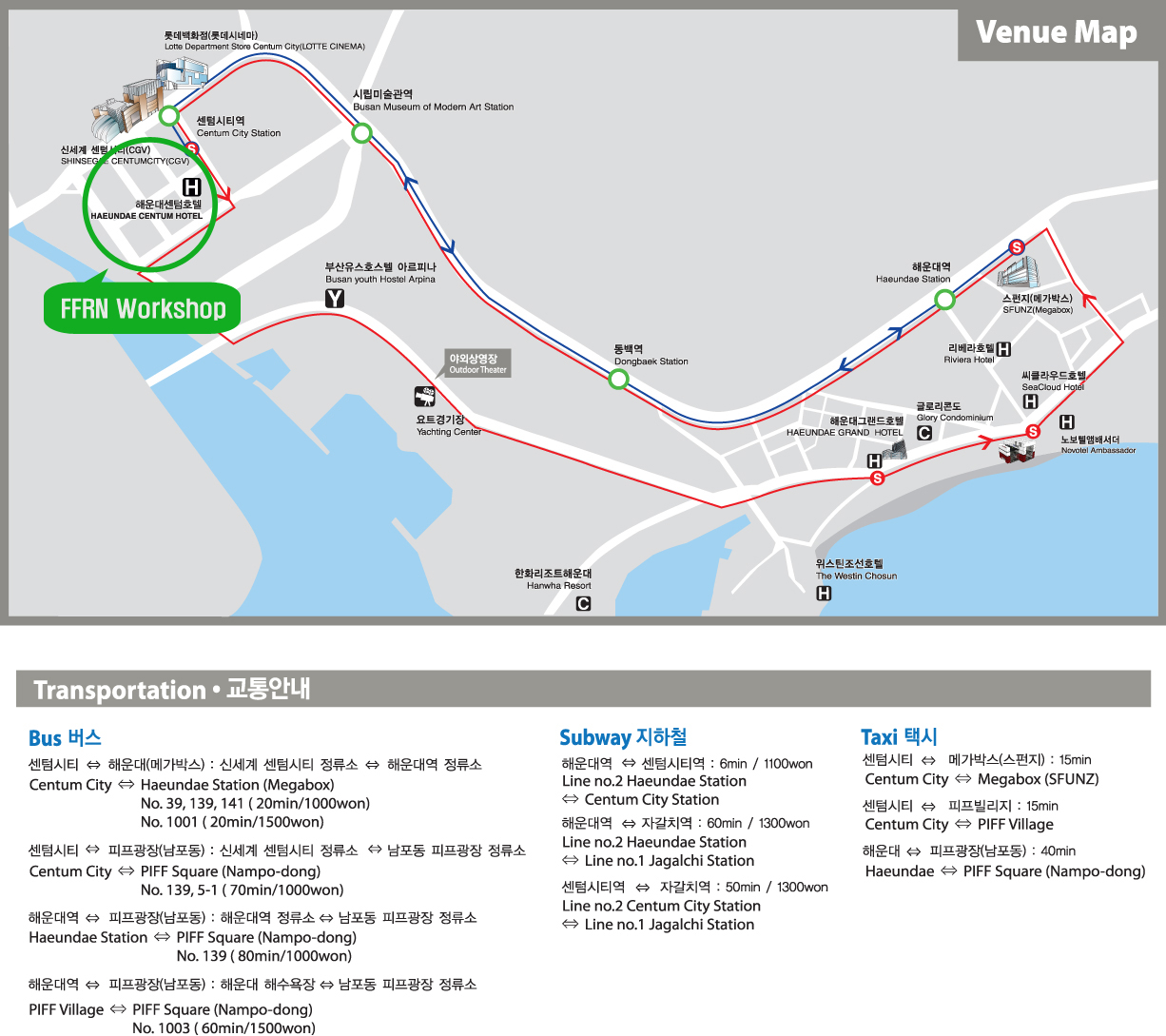Call for Papers / Appel à communications
For a History of Festivals (19th – 21st centuries)
International Symposium
24-25-26 November 2011
Centre d’histoire sociale du XXe siècle (Université Paris 1 Panthéon-Sorbonne)
Centre d’histoire culturelle des sociétés contemporaines (Université de Versailles Saint-Quentin-en-Yvelines)
Although a “cultural object” especially popular in the early 21″ century, festivals have not yet been I examined through collaborative studies or broad historical syntheses. Consequently, we seek to bring together I researchers from different disciplines, working on a variety of geographic areas and familiar with diverse I archives and resources, in a context of contemporary history that may, where necessary, step back in time.
Several questions will be central. How do we tell the history of such artistic events that are both collective and ephemeral? Should we write a singular, or plural, history of festivals? How should we consider the connections between festivals as well as the relationships between festivals and the societies in which they occur? The objective is to examine how the path carved by these artistic forms can not only feed the contemporary debate about “public space”, but also give rise to the concept of “public moments”: festivals as space and time that are communally constructed, shaped, and contested.
The symposium will thus focus on moments of emergence, adoption, and diffusion of the festival “form”, which itself must be examined and defined from different perspectives (including genre, aesthetics, etc.). In the 19th century, the term “festival” applied only to the field of music, especially choral performances. Present in France by means of the “festivals orphéoniques“, the phenomerron was also prevalent in Switzerland, Belgium, Holland, Germany and England. Therefore, it will be useful to study this “prehistory” of festivals to identify if, and how, this 19th century heritage influenced the festivals of the 2oth and 21st centuries. The symposium will take into account all forms of transmission and all relevant fields of creation without exception, whether or not connected to “mass culture” and including thase fields considered the least legitimate. Examples may range from theatre, music, cinema, and photography, to comic books, comedy, and songs. We will also examine the different actors, institutional and otherwise, who contribute in one way or another to the creation and development of festivals, including promoter, organizers, artists, critics, and audiences. At the heart of this inquiry will be the forms of festivals that are adopted and the role that those festivals play in their respective societies. We hope to test the use of various typologies based upon different criteria (e.g. specialization, form of dissemination, artists’ staging, etc.).
This symposium, which is a continuation of the two-day workshop organized by the Centre Georges Chevrier (Université de Bourgogne) on February 2011, aims to be comparative and international in its approach: contributions on festivals from all continents are welcome. In this context, the roles of mediation and transmission played by festivals between artists, genres, or societies will be particularly valued, and case studies such as those addressing transnational cultural transfers will be preferred. Finally, the symposium will consider the question of what place festivals hold, and will hold, in the creation of a global culture.
To this end, we have identified several categories of interest:
A/ Definition and Scope
1/ What a festival is and is not
2/ The invention of the festival. Important precursors and early forebears.
3/ Moments of festival creativity. Locations and modes of dissemination and abandonment. Memory and nostalgia.
B/ Formal Perspective
1/ Actors: organization (public or private actors), production (professionals or amateurs), reception (critiques and “the public”)
2/ The festival as event: highlights, use of the media, and scandals. Festivals’ sociability and codes of behavior.
3/ Aesthetic forms: inventions, appropriations, and hybrids.
C/ Functional Perspective
1/ Political, economic and social issues. At local, regional, and national levels
2/ Creative issues. The role of festivals in the history of an artist or a genre (launching, manufacturing, consecration …)
3/ Issues of international cultural relations. Cultural transfers, migrations, and circulations: locations and players. Relationships between festivals. Festivals’ contributions to global culture.
Papers will be presented in French and in English.
Proposals of one page in length (up to 2,500 signs), along with a short resume, are to be sent before 10 December 2010 to: histoire.festivals@gmail.com
Pour une histoire des festivals (XIXe-XXIe siècles )
Colloque international
24,25 et 26 novembre 2011
Centre d’histoire sociale du XXe siècle (Université Paris 1 Panthéon-Sorbonne)
Centre d’histoire culturelle des sociétés contemporaines (Université de Versailles Saint-Quentin-en-Yvelines)
« Objet culturel » particuliérement en vogue au début du xxle siècle, les festivals n’ont, pour l’instant, donné lieu ni à des études collectives ni à de vastes synthèses historiques. Aussi notre ambition est-elle de rassembler des chercheurs de disciplines différentes, travaillant sur des aires geographiques distinctes, bénéficiant d’archives et de témoignages variés, dans une perspective d’histoire contemporaine qui s’autorise,
si nécessaire, à remonter dans le temps.
Plusieurs interrogations seront au ceur de la réflexion. Comment peut-on faire une histoire de ces manifestations artistiques à la fois collectives et éphémères ? Doit-on écrire une histoire singulière ou plurielle des festivals ? Comment réfléchir à l’articulation des festivals entre eux et avec les sociétés dans lesquelles ils se déroulent ? Le pari, Ici, est de considérer que le détour par ces formes artistiques peut non sèulement contribuer à nourrir la question des espaces publics mais aussi à faire émerger l’idée de moments publics : les festivals comme espaces et temps de construction communautaire, d’initiation, de formation, de contestation,
etc.
Le colloque Sera ainsi particulièrement attentif aux moments d’émergence, d’adoption et de diffusion de la « forme » festival, dont il faudra interroger la définition et la pertinence même (genre? catégorie esthétique? variation du spectaculaire?). Au XIXe siècle, le terme « festival » ne s’applique en effet qu’au domaine musical, plus spécialement au répertoire choral. Présent en France par le biais des festivals
orphéoniques, le phénoméne concerne surtout la Suisse, la Belgique, la Hollande et surtout l’Allemagne et l’Angleterre. II conviendra donc d’étudier cette « préhistoire » des festivals pour mesurer si, et comment, l’héritage du XIXe siècle a influencé les festivals des XXe et XXle siécles. Le colloque prendra en compte toutes les formes de transmission et tous les domaines de crèation concernés sans exclusive, relevant de la culture de masse ou non, y compris celles et ceux jueés les moins légitimes : théatre, musique, cinéma, photographie, mais aussi bande dessinée, rire ou chansons. Les différents acteurs, institutionnels ou non, qui contribuent, à un titre ou à un autre, à la fabrication des festivals seront étudiés : promoteurs, organisateurs, artistes,
critiques et publics. Les formes adoptées, les fonctions comme la place que les festivals occupent au sein des sociétés seront au coeur des interrogations. On n’hésitera pas non plus tenter des typologies autour de critéres variés (spécialisation, type de diffusion, d’audience ou de médiation, mise en scène des artistes, etc.).
La perspective de ce colloque, qui se situe dans la continuité des deux journées d’études organisées par le Centre Georges Chevrier à l’Université de Bourgogne en février 2011, se veut à la fois comparatiste et internationale : les contributions sur les festivals des différents continents seront donc les bienvenues. Dans ce cadre, les rôles de médiation et de passage joués par les festivals entre les artistes, les genres ou les sociétés devront être tout particulièrement étudiés. Les études de cas transnationales comme celles portant sur les transferts seront privilégiées. Enfin, la question se posera de l’éventuelleplace que les festivals tiennent dans la constitution d’une culture mondiale.
A cette fin, plusieurs axes ont été retenus :
A/ Définition et champ
1/ Ce qu’est un festival et ce qu’il n’est pas
2/ L’invention du festival. Grands ancêtres et festivals matriciels
3/ Moments de créativité festivalihre. Lieux et modes de diffusion et d’abandon. Mémoire et nostalgie
B/ Perspective formelle
1/ Acteurs. Organisation (acteurs publics ou privés), production (professionnels ou amateurs), reception (critiques, publics)
2/ Le festival comme événement : temps forts, mobilisation médiatique et scandales. Sociabilités et usages festivaliers
3/ Les formes esthétiques : inventions, emprunts, métissages
C/ Perspective fonctionnelle
1/ Enjeux politiques, économiques et sociaux, A l’échelle locale, réeionale et nationale
2/ Enjeux créatifs. Rôle des festivals dans l’histoire d’un artiste ou d’un genre (lancement, fabrication, consécration …)
3/ Enjeux de relations culturelles internationales. Lieux et acteurs de transferts culturels, migrations et circulations. Relations entre festivals. Contribution des festivals à une culture mondiale
Les communications seront présentées en français et en anglais.
Les propositions (2500 signes maximum), accompagnées d’une présentation de l’auteur, sont à envoyer avant le 10 décembre 2010 à histoire.festivals@gmail.com
Scientific Committee / Comité scientifique: Antoine de Baecque (Universitd Paris Ouest), Edward Berenson (New York University), Peter Burke (University of Cambridge), Myriam Chimènes (CNRS), AnaïsFléchet (Université de Versailles Saint-Quentin), Eloi Ficquet (Centre Français des Études Éthiopiennes), Pascale Goetschel (Université Paris I), Vinzenz Hediger (Ruhr-Universität Bochum), Patricia Hidiroglou (Université Paris I), Denis Labarde (Ehess), Sylvie Lindeperg (Université Paris I), Emmanuelle Loyer (IEP de Paris), Caroline Moine (Université de Versailles Saint-Quentin), Marcos Napolitano (Universidade de São Paulo), Emmanuel Négrier (Université de Montpellier), Pascal Ory (Université Paris I), Philippe Poirrier (Université de Bourgogne), Martine Segalen (Université Paris Ouest), Françoise Tétard (CNRS), Ludovic Tournès (Université Paris Ouest), Julie Verlaine (Université Paris I), Emmanuel Wallon (Univenité Paris Ouest), Jean-Claude Yon (Université de Versailles Saint-Quentin).
Organization Committee / Comité d’organisation: Anaïs Fléchet, Pascale Goetschel, Patricia Hidiroglou, Caroline Moine, Pascal Ory, Françoise Tétard, Julie Verlaine, Jean-Claude Yon.
 Severe cuts in the arts currently happening in the UK have slashed the BFI and is now threatening the existence of one of the oldest, best organized and audience- as well as industry-friendly LGBT film festivals in the world. There is a petition to support the London Lesbian and Gay Film Festival (2011 in its 25th edition).
Severe cuts in the arts currently happening in the UK have slashed the BFI and is now threatening the existence of one of the oldest, best organized and audience- as well as industry-friendly LGBT film festivals in the world. There is a petition to support the London Lesbian and Gay Film Festival (2011 in its 25th edition).

 elebrities have been welcomed through our doors in the nearly two centuries since its opening — including Oscar Wilde, P.T. Barnum, Mark Twain, Jenny Lind, Enrico Caruso, General Robert E Lee, Franklin Roosevelt, Liza Minelli and Frank Sinatra. Indeed, the walls throughout this incredible building are covered in the framed photographs of several of our famous patrons.” (from the history section of the website of the
elebrities have been welcomed through our doors in the nearly two centuries since its opening — including Oscar Wilde, P.T. Barnum, Mark Twain, Jenny Lind, Enrico Caruso, General Robert E Lee, Franklin Roosevelt, Liza Minelli and Frank Sinatra. Indeed, the walls throughout this incredible building are covered in the framed photographs of several of our famous patrons.” (from the history section of the website of the 
